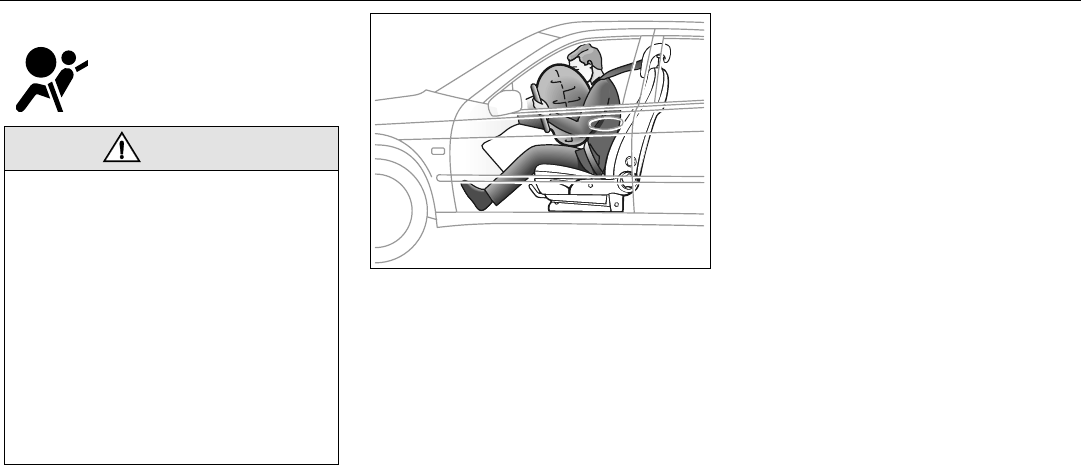
31Safety
Airbag
The AIRBAG system comprises an airbag in
the steering wheel, a front passenger airbag
and side airbags in the front seats.
The system supplements the protection
provided by the safety belts to further
enhance the safety of the occupants.
If a fault is detected in the AIRBAG, the
AIR BAG warning light on the main instru-
ment panel will come on (see pages 56 and
36).
When the system is triggered by impact of a
frontal crash, the airbags in the steering
wheel and passenger side of the dash board
are inflated, after which they deflate through
vents in the back of the bags.
The driver and passenger airbags are
so-called smart airbags. This means that
the system compensates for factors such as
the force of the collision.
Note:
The sensor reacts differently depending on
whether or not the front seatbelts on the
driver’s and passenger sides are used. Situ-
ations can therefore arise where only one of
the airbags inflates.
It is also possible for only the seatbelt
pretensioners to be activated and for the
airbags to remain uninflated.
The entire process takes less than
0.1 second – literally, faster than the blink-
ing of an eye.
These airbags are triggered only by moder-
ate to severe frontal or near-frontal crashes.
They will not be activated by minor front-end
impacts, rear-end or side impacts, or by the
car rolling over.
WARNING
To reduce risk of injury:
• Always wear your safety belt.
• Always adjust your seat so that you
are as far back as possible but still
able to operate the pedals and reach
the steering wheel and controls
comfortably.
• Children 12 and under or shorter than
55 inches (140 cm) should always
travel in the rear seat as the car is fitted
with a passenger airbag.
• Never fit a child seat in the front of the
passenger airbag.
IB419
Inflated airbag (driver side)
Inflation and deflation together take less than
0.1 second.


















